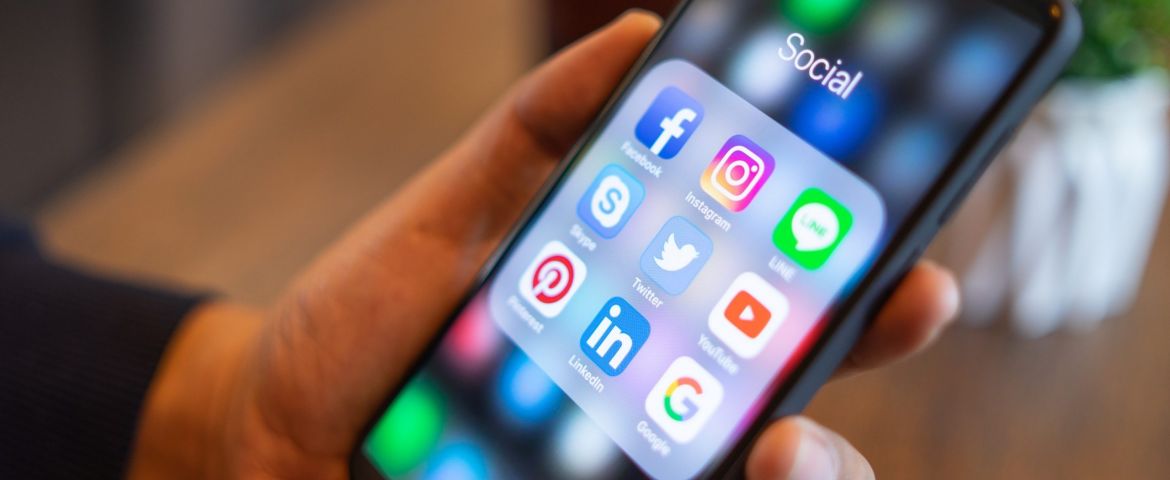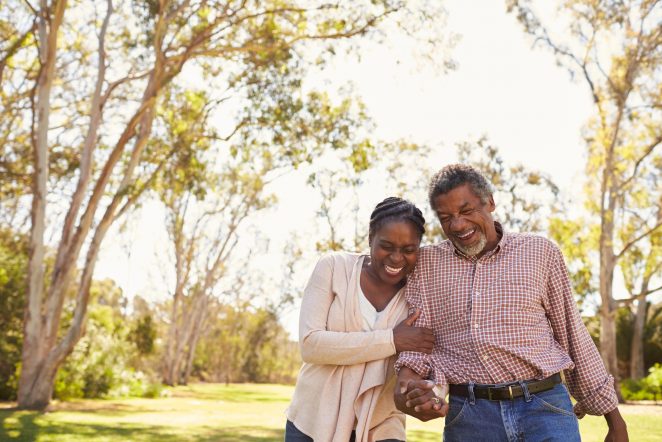Time spent online reached record highs for many during 2020 — from searching for information about the year’s many tumultuous events to looking for ways to pass the time, social media became a bigger part of everyday life than ever before.
Social media has often been recognized as a double-edged sword; while it connects us easily to loved ones and new friends around the world, it also can also have negative impacts on mental health and more. The past year has highlighted this complex dynamic even further — social media played an integral role in keeping us connected during shutdowns due to COVID-19, but it also became a hub for the spread of misinformation and online feuds.
Social media will likely remain a significant part of life far into the future. If your time online is starting to cause negative feelings or if your screen time is higher than you’d like, it may be time to reevaluate your relationship with social media and find opportunities to make your time online more beneficial to your health.
1. Get candid about your social media use.
The first and often most difficult part of creating a healthier relationship with social platforms is identifying where you need to set boundaries. Healthy boundaries will look different for everyone, so start by asking yourself a few questions:
- How much time am I spending on social media each day? Accurately track the amount of time you spend on each of your social profiles. Your phone likely collects data about this usage and could be a good starting point.
- How much time do I want to be spending on social media each day? Now that you have an official number attached to your social media usage, think about how much time you would ideally log. What’s a number that you’d feel comfortable sharing with family, friends, or strangers?
- How do I feel after using each of my social media apps? One of the biggest threats that social media holds towards our mental health is making us feel poorly about ourselves, our lives, the world, and more. There is a lot of negativity online and avoiding it isn’t always so simple.
Take stock of your emotions both while using and after using one of your platforms. Were you happy to see your cousin’s engagement announcement on Facebook, or jealous? Calm after reading the comments on a political post, or enraged? Be honest about how you feel after each time you log on to a specific app. Be careful not to make yourself feel bad for having these feelings – identify that they exist so you can work towards remedying them.
- How is my time on social media impacting other parts of my life? Maybe social media distracts you while you’re at work, or keeps you from focusing on the movie you and your roommate or family member are watching. No matter what the effects may be, take time to recognize how your time online impacts your time in the real world.
Once you’ve answered these questions, you can begin to take actions to help address the specific areas where you need to establish some social media boundaries.
2. Turn off notifications and set time limits.
If your self-reflections lead you to determine that social media is consuming too much of your time or negatively effecting other aspects of your life, setting time limits for certain apps could help. On many devices, you’re able to configure time limits for specific apps and receive notifications when you are close to hitting your time limit or once it has been reached.
Take advantage of this feature and work towards your ideal time. The key is to a set a limit that you will honor – consider working towards your goal in phases. For example, if you spend an hour a day on Facebook and want to get down to 20 minutes a day, don’t automatically set a time limit for 20 minutes. Start at a 45-minute limit and slowly work your way down until you are consistently successful in hitting your goal time.
An easy way to limit the number of minutes spent in each app? Turn off your push notifications. These reminders are designed to get you to open the app, so be selective about which ones you have turned on. While you might want to know right away when you get an email or text, it’s not as essential for you to be bombarded with updates on who shared a new photo or liked your most recent post.

3. Limit your platforms.
Though it’s tempting to want to be everywhere, you don’t need to have a profile on every social media platform. The fear of missing out can lead us to feel like we need to be active in all the same places as friends and family, but having that many profiles to maintain can quickly grow tiresome.
Stick to the sites you actually enjoy, and if you find yourself growing tired of an app, don’t hesitate to delete your profile. If you consistently find yourself comparing yourself to others and experiencing negative emotions after using a certain platform, that also might be an indication it’s time to take a break or leave the site altogether.
4. Protect your online space.
While learning to appropriately respond to viewpoints that are different than our own is an essential part of life, social media is not always the place to do it. The anonymity of social media can often lead people to act more aggressively and negatively towards each other; cyberbullying can be especially detrimental.
You shouldn’t necessarily only follow friends and organizations who reflect the exact same thoughts and ideas as you; after all, social media can be a space to share ideas and learn new things. But if certain topics, or even people, consistently trigger negative emotions when you use social media, make an effort to remove them. Unfriend or unfollow people; block certain words, phrases, or people from appearing in your feed. Disagreeing with people on social media is normal and healthy, but experiencing anxiety, depression, or bullying because of it is not. Protect your online space as a place where you can safely express yourself and interact with others.
On that same note, make sure you’re a safe person to engage with online. Respectfully disagree with others (or refrain from engaging at all if you know you’ll begin to post potentially offensive or disrespectful comments), and know how to leave a conversation before things get out of hand and relationships are damaged.

5. Be informed and be responsible.
As the 2020 election and pandemic demonstrated, misinformation spreads like wildfire on social media. One of the best ways to improve your and others’ experience online is to do your part to stop the spread of misinformation (You can find more detailed instructions here.) This is often easier said than done, but some quick questions that can help you quickly determine if an article is fake or misleading:
- When was the information published?
- Who is the author? Who is the publisher?
- Who funded the study, experiment, etc.?
- Where is the article published?
- Are other major networks talking about it?
- Can you factcheck the claims that are made?
If you’re unsure of the accuracy and validity of a certain piece of content, don’t share it.
6. Do a digital detox.
Social media can be exhausting, and even with appropriate boundaries it can lead to burnout. Make sure to take an occasional break from the online world — whether that’s over a weekend or for a month (pro tip: you don’t need to post that you’re taking a break!)
A good time to do this is on a vacation – take photos to share later, but don’t feel you have to post every single detail and activity on your trip while it’s happening. Instead, enjoy the beautiful scenery and experiences around you with your own eyes and save the selfies for another day. Post photos once you’re back home, and you’ll get to relive your fun trip all over again. Whenever you can manage a detox, it will give you time to recharge and even reevaluate your online presence, so you can return with a new perspective and develop healthy online habits.
Above all else, be kind to and respectful of others and yourself in digital spaces. Use social media to share good news, provide education and accurate information, uplift others, offer support, and foster community. Together we can make the online experience a little more positive for everyone.


